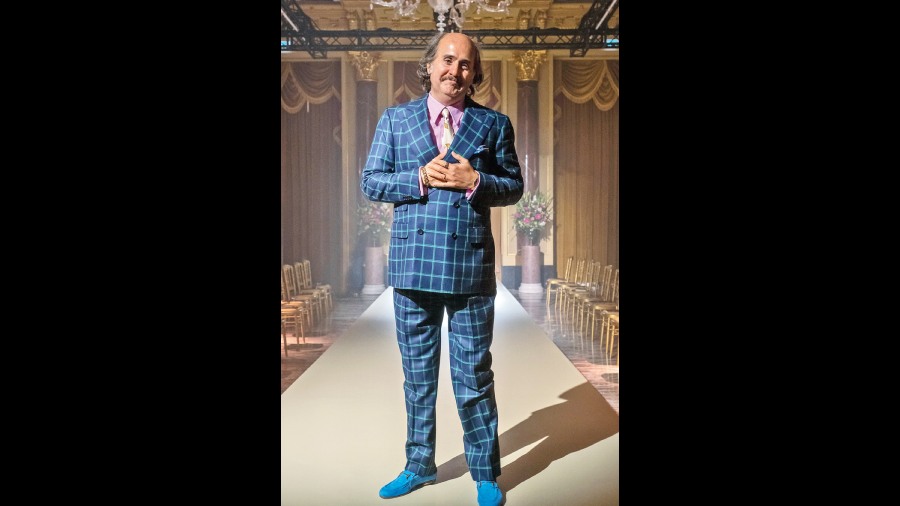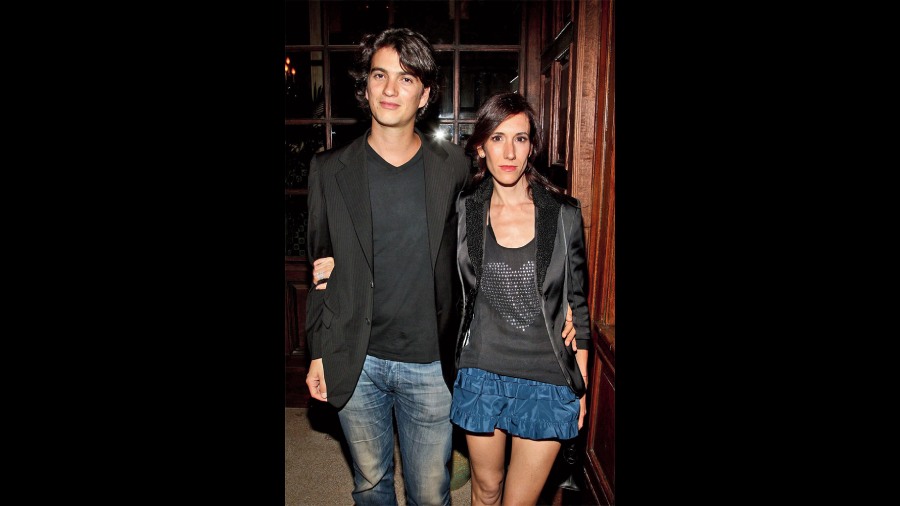In 2010, investors were looking for the next Steve Jobs. What they found is Adam Neumann, the co-founder of WeWork, a cautionary story for any entrepreneur. Perspective is required. Raised in Israel on a kibbutz or a communal settlement, Neumann arrived in New York at the age of 22, following service in the Israeli military. He attended Baruch College and tried to start businesses — collapsible heel on women’s shoes (it didn’t take off) and then Krawlers, which was about making baby clothes with knee pads to make crawling comfortable. It didn’t work. What did work was his next idea of subleasing office spaces to small start-ups or the freelance worker. Shared space meant a shared sense of community. These spaces were to come with all the facilities promised in offices of tech giants — coffee bar, beer, food…. And he found a partner (and then wife) who believed in him — Rebekah Paltrow, a cousin to Gwyneth Paltrow.
The company’s valuation grew and grew fast… so did the losses. According to the book The Cult of We: WeWork, Adam Neumann, and the Great Startup Delusion, WeWork lost more than $3,000 every minute. Adam believed in valuation. Instead of treating WeWork as a real estate company, he perhaps looked at it as a tech entity. At its peak in 2019, the company was valued at more than $47 billion. “It went to my head. You lose focus on really the core of your business and why this business was what it meant to be,” the co-founder told DealBook Online Summit in 2021. Eventually it was an impending IPO that did Neumann in and WeWork sort of had a meltdown. The IPO was cancelled, Neumann was made to leave and things went from worse to worst… for a company that even had offices in India.
It’s a story worth the time of any film-maker. Equally worth narrating is the love story hiding in this crash. Turned into a miniseries (based on the podcast WeCrashed: The Rise and Fall of WeWork), creators Lee Eisenberg and Drew Crevello (also the writers) have cast Jared Leto as Adam Neumann and Anne Hathaway as Rebekah Neumann in the upcoming Apple TV+ series WeCrashed, which will premiere on March 18.
Ahead of the big unveiling, The Telegraph had an opportunity — as part of Television Critics Association (TCA) Winter Press Tour, on a virtual invitation from Apple TV+ — to hear the actors — Anne Hathaway and Jared Leto —and creators of the show discuss WeCrashed. “It was this very epic rise and fall story… this meteoric ascent and this equally spectacular and kind of historic fall. And it played out very publicly. But really, what was fascinating to us was there was a relationship… like a love story at its heart. And that’s what sort of made it so unique to us… exploring that love and how that love contributed to that rise and fall. That really captivated us,” said Lee and Drew.
Getting interested in the story…
Anne Hathaway: I was unfamiliar with the story when it came to me and I became very interested in this idea of the mentality that people have that doesn’t let them see the world that other people see. It was the first thing that interested me. And then as I got to know Lee (Eisenberg, writer) and Drew (Crevello, writer), I began to realise this was going to be a really serious team and then they told me that Jared Leto was involved and I realised this was a team I wanted very much to be on. That was the beginning of it for me… the possibility of exploring how these two people work and then as we got deeper into it, I realised the depth of the love story.
Not assuming the worst of people…

The leading characters of WeCrashed filming the miniseries. Picture: Getty Images
Anne: What we aspired to do was present it as a story as fairly as possible, and to not assume the worst of people. To explain that… just because there are people we think we might disagree with doesn’t automatically make them bad. And I thought it was very important to get a full picture of who she is because at the end of the day, I’m just a human being playing another human being.
Jared Leto: I was familiar with it (the story). I was familiar with WeWork and I’ve been to some WeWorks before and I thought, wow, this is a gorgeous company; the product was amazing; the spaces were incredible. I remember friends of mine using that product and being really happy with it. I remember hearing about how huge a success story it was. The fact that it was valued so high and then all of a sudden they were confronted with these enormous challenges…. Sitting down with Lee and Drew to get a sense of where they wanted to go with this story, and we kind of shared our thoughts and ideas and I was happy to hear that they didn’t want to just make it a takedown piece or the kind of piece to vilify people. Then there was the opportunity to work with Anne (Hathaway), one of the greatest actors in the history of films. It was easy.
Not turning characters into caricatures…
Drew Crivello: It would have been very easy for us to kind of reduce these people into caricatures or to render judgment on what they did. We try to focus on these like central dramatic questions. Were they good people or bad people? The truth is there were a couple of dramatic questions that we wanted to explore. Were these idealistic visionaries, or was there cynicism and opportunism? Could there be both? People want black-and-white answers, but there’s a lot of grey here and we tried to live in that grey and we feel very confident that we’ve laid out our story and provided enough for you to draw your conclusion. It’s going to be provocative. There will be debates. There aren’t easy answers. And like Anne just said, you know these are flawed, fascinating, complex people… that there are no easy answers here.
Anne: The goal of this series is to have people draw their own conclusions. I do think at the beginning… certainly in the first few episodes… you see that these are people who had sincere intentions. I think they wanted to make the world a better place. How they executed that is a lot more complicated, but I do think they were people who really looked at the world and wanted to make it a better place.
Tech entrepreneurs who didn’t dabble in bits and bytes, unlike the many other Silicon Valley entrepreneurs…
Lee Eisenberg: It was more of a real estate company that tried to portray itself as a tech company. The desire of companies to portray themselves as tech and what they can do for their valuation and the decisions that motivates are something we explore quite a bit.
Understanding the mystery and complexity of Adam Neumann….
Jared: You’re never going to understand everything that’s for sure, and you know this is a painting and not a photograph. It’s not a documentary. So it’s impressionistic and when you play a real-life character, I always feel you have an obligation to dive deep and give due diligence and to bring that person to the screen with as much dignity and grace as possible.
Adam Neumann’s Israeli accent is not an easy one….

Jared Leto’s transformation into the older, balding Paolo Gucci in House of Gucci
Jared: Probably the insurance against things slipping into caricatures is to dive into as much truth as possible, right? And in this case there was a great team of Israelis surrounding me that I was working with and we kind of had our own bubble during this time. I was just coming from House of Gucci. I literally went from Italy to New York. And little did I know they actually have a lot of similarities between the two accents. As far as sounds, vowel sounds and things like that… with Adam’s accent, I wasn’t really doing an Israeli accent but I was doing Adam’s accent. Accent is basically an accident… just a series of mistakes.
You learn how to say a word and maybe you don’t see it… it’s a series of habits; it’s the way your mouth makes shapes and everyone learns them differently. There are some similarities culturally or from country to country or region to region, but the good thing about Adam is that there was a lot of material out there, so we had hours and hours of footage. I was buried in the footage and it is the opposite with Paolo Gucci when I had about a minute and a half of his voice and an interview. So in this case, it was like a blessing to be buried in interviews and he gave a lot of interviews… he talked even more than I’m talking now. He was verbose.
Lee: I’ll just add to that… my dad is Israeli and I started showing him things from what we were shooting. He thought Jared had nailed it.
Studying the character of Rebekah Neumann….
Anne: I did study her a lot and during the rise of WeWork, Rebekah gave a series of interviews and she’s always been very generous in terms of sharing the wisdom that she’s learned… she’s interested in spirituality, sharing the books she has read. So I really immersed myself in those. I also worked with a woman named Amy Hammond. As a researcher, she gave me amazing research on Rebekah’s life… on Rebekah’s world. It is a world that I was not born into but I am familiar with and then I just sort of did my own investigative reporting. I would find people that knew her and I would ask them questions and it was very interesting to kind of hear people’s experience with her versus the way she’s portrayed in the media. There’s a big difference there, but I really I have to take this opportunity to compliment my co-star because all that prep didn’t ignite for me until he walked on set and began speaking in that wonderful voice and I remember being so excited both as myself and as Rebekah… I realised there’s a difference between an accent and voice. He had found a voice, and all of a sudden I opened my mouth, and Rebekah’s voice came out. And in that moment we found each other on some acting level and that was when the project really opened up and that’s when she really became real for me.
The rise and fall of WeWork

Adam and Rebekah Neumann in 2009, the year before they founded WeWork
2010: Israeli-born Adam Neumann and American-born Miguel McKelvey found WeWork as shared workplaces for entrepreneurs, freelancers, start-ups and small businesses. Its first location is in the SoHo section of Manhattan.
2013-15: Several leases are signed, going on a spending binge. Some investors grew nervous about the rapid expansion while having an unpredictable customer base.
2016: WeWork opens locations in India. “India is a unique and special place but a challenging business environment,” Neumann said.
2017: WeWork and SoftBank confirmed a combined $4.4 billion investment in the company. The company was reportedly valued at about $20 billion.
2018: Neumann reportedly smoked marijuana on a private jet to Israel. The crew was reportedly forced to don oxygen masks. The plane company refused to fly the man back.
2019: SoftBank invests an additional $2 billion in funding at a $47billion valuation.
August 2019: WeWork releases its much-anticipated IPO prospectus. Analysts express skepticism about the company’s true value.
September 2019: IPO postponed till end of 2019. That same month, WeWork announces Neumann will step down as CEO.
October 2019: Neumann resigns from the board; offered package worth up to $1.7 billion.










